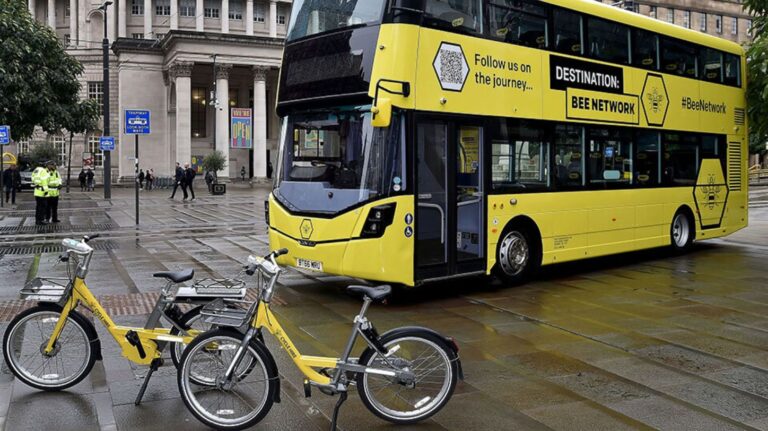UK transport secretary Louise Haigh has unveiled a ‘people-first’ approach to transport in England, aiming to enhance connectivity, empower local leaders and drive economic growth.
Speaking to metro mayors, council leaders, and transport bodies at Leeds Civic Hall on 28 November 2024, Haigh introduced the Integrated National Transport Strategy, the first of its kind in 25 years.
The strategy seeks to address the fragmented nature of England’s transport networks by encouraging seamless, door-to-door journeys that integrate multiple modes of transport.
Modelled on successful systems such Greater Manchester’s Bee Network and Transport for London, the vision prioritises collaboration across buses, rail, and active travel to deliver more cohesive and efficient services.
Drawing from international examples, Haigh highlighted Dijon’s approach, where buses run every five minutes during peak hours, trams every three minutes and rural areas are supported by dial-a-ride services.
The French city has also developed a single app integrating planning, ticketing and parking for all transport modes – a model Haigh said she hopes to replicate in England.
The strategy also includes reforms to the UK Department for Transport’s (DfT) appraisal system, ensuring that projects deliver measurable economic and social benefits.
Haigh announced the creation of an internal panel of experts to evaluate capital spending priorities and emphasised the importance of boosting productivity, improving education access and fostering healthier communities.
Haigh launched a national call for ideas to help shape the strategy, alongside plans for regional roadshows to engage local leaders, transport operators, and the public.
“Integrated transport in this country is lagging behind our European counterparts,” she said.
“For too long, our fragmented transport networks have stunted economic growth and made it harder for people to get around.
“Today, I’m launching a new vision that puts people at the heart of our transport system.”
West Yorkshire Mayor Tracy Brabin welcomed the announcement, emphasising the importance of integrated systems for regional growth.
“In West Yorkshire, I have big plans for a world-leading mass transit system that will be fully integrated with railways and a publicly controlled bus network, helping people access new jobs and opportunities across the region.”
The strategy will also address rural connectivity by leveraging data to manage traffic flows and improve parking accessibility.
Promoting active travel for shorter journeys is another priority, with plans to enhance cycling and walking infrastructure, repair pavements, and improve pedestrian crossings.
To oversee the strategy’s implementation, the UK DfT will appoint an integrated transport commissioner tasked with driving change and ensuring the vision translates into tangible benefits for communities nationwide.





